
- •Kazakhstan
- •In short stories
- •Введение
- •President nursultan nazarbayev
- •I would like to talk to you about…
- •I will make sure that all children in this country get a good education by hiring more teachers and spending more on education.
- •Economy of Kazakhstan
- •Leading Industries
- •Ferrous Metal Industry
- •Chemical and Oil-Processing Industries
- •Oil and Gas Industries
- •Transport and Communications
- •Agriculture
- •Foreign Economic Relations
- •Astana (2)
- •Astana - the capital of Kazakhstan
- •Eastern Ring
- •Insert prepositions:
- •Vocabulary:
- •My Native City
- •Vocabulary:
- •Semipalatinsk
- •Nurlan Omarov, City Akim Some data
- •It was the center of Semipalatinsk region till 1997.
- •The main branches of economy
- •Vocabulary:
- •1. In the post- war years in Semipalatinsk …
- •Rakhmanov hot springs
- •Vocabulary:
- •Markakol zapovednik
- •Vocabulary:
- •The irtysh river
- •Vocabulary:
- •Town near chinese gates
- •Animals are in danger in kazakhstan
- •Some interesting facts about east kazakhstan animals live “barometers”
- •Part VII: rare birds and animals of kazakhstan (entered in “red book”) The Golden Eagle (беркут)
- •Vocabulary:
- •Demoiselle Crane (журавль-красавка)
- •Vocabulary:
- •Great white pelican (розовый пеликан)
- •Vocabulary:
- •Black stork
- •Vocabulary:
- •Environmental problems
- •Vocabulary:
- •Almaty (2)
- •Vocabulary:
- •Karaghandy (1)
- •Karagandy (2)
- •Kokshetau
- •Translate into English:
- •Petropavlovsk
- •Vocabulary:
- •Kyzylorda
- •Baikonur cosmodrome
- •Vocabulary:
- •Abai Kunanbayev (!)
- •Abai Kunanbayev (2)
- •Word 4 (1891)
- •Word 6 (1891)
- •Word 31 (1895)
- •Word 14 (1893)
- •Mukhtar Auezov (1)
- •Mukhtar Auezov (2)
- •Kurmangazy Sagyrbayev (1)
- •Kurmangazy (2)
- •1. Most verbs add – ed to form the past tense which sounds [d] or [t]. Put the verbs below into the correct column:
- •2. Some verbs add –ed to form the past tense which sounds [id]. Find these verbs in the text, write them below:
- •3. Practice saying these words. Сhokan Ualikhanov (1)
- •Chokan valikhanov (1835 —1865) (2)
- •ZhambyL Zhabayev
- •Magjan Jumabayev
- •Altynai asylmuratova
- •Vocabulary:
- •Timur bekmambetov
- •Vocabulary:
- •Rosa rymbayeva - the pride of our country (1)
- •Vocabulary:
- •Abylkhan kasteev (2)
- •Vocabulary:
- •Roza rymbayeva (2)
- •Vocabulary:
- •Kanysh satpayev (1)
- •Vocabulary:
- •Alexander vinokourov
- •Vocabulary:
- •Talgat musabayev (1)
- •Vocabulary:
- •Talgat musabayev (2)
- •Kanysh satpayev (2)
- •Vocabulary:
- •Saken seyfullin – a martyr for freedom
- •Vocabulary:
- •Nurzhuman ihtymbayev
- •Vocabulary
- •Batyrhan shukenov
- •Vocabulary:
- •Kumash nurgalievich nurgaliyev - the people's teacher (1925-1988)
- •Vocabulary:
- •He is the best forward of the world fans
- •Vocabulary:
- •Shakharim kudiberdiev
- •Vocabuary:
- •Kazakhstan: Culture Back to Top
- •State holidays and national holidays. Meals of the people living in kazakhstan
- •Vocabulary:
- •Housing: the yurt
- •Vocabulary:
- •Traditions and customs
- •Vocabulary:
- •Cutting the hobble
- •Vocabulary:
- •Maslenitsa
- •Vocabulary:
- •Kelin Tusiru
- •Shildekhana
- •Cultural norms in kazakstan
- •The magic of old jewelry
- •Vocabulary:
- •Kazakh music culture
- •Asian games (asiads)
- •Vocabulary:
- •Sports and games in kazakhstan
- •Vocabulary:
- •In the Past the life and well-being of Kazakhs depended on their strength, endurance and courage. So, special attention was paid to teaching young generation good qualities.
- •Arkan tartu (tug–of –war)
- •Altybakan
- •To participate
- •National horse-sport games
- •Vocabulary:
- •Baige (horse race)
- •Vocabulary:
- •Vocabulary:
- •Vocabulary:
- •Kazakh National cooking
- •Vocabulary:
- •Sorpa in the kazakh manner
- •Kuyrdak
- •What is kazakh food like?
- •History and food.
- •Food for religious and holiday celebrations.
- •Kazakh Traditional Dishes
- •3. The meat is …
- •The kazakh legend of the lame onager (koulan)
- •Aldar kose and the snake
- •Vocabulary:
- •A deceived fat man
- •Vocabulary:
- •Intellect, science and happiness
- •My country (1)
- •I’m proud of my state.
- •It is so beautiful and great!
- •It has a lot of limitless steppes, high mountains,
- •My country (2)
- •My motherland
- •I love my country
- •Kazakhstan is good
- •Oh, my luckless kazakh
- •Oh, kazakhstan, I’m in love with you!
- •I love you deeply, dear land,
- •We love you, dear Kazakhstan
- •Addressing to a friend
- •Do the Clothes Make the Man?
- •The Rooster and the Peacock
- •There’s No Use Crying Over Spilled Milk!
- •The Elephant and the Monkey
- •The Nightingale, the Spider, and the Bat
- •The Three Bears
- •The Wolf, the Fox and the Donkey
- •What’s Tastier?
- •The Eagle and the Raven
- •Traditions and customs
- •Cutting the hobble
- •Sorpa in the Kazakh Manner
- •Во второе издание тексты и задания добавили:
- •Составители сборника:
- •Редакционная коллегия:
- •Выражаем особую благодарность
- •Literature:
- •Рецензия
Vocabulary:
initiative – инициатива
facilities – оборудование
establishment – образование, учреждение
kindergarten – детский сад
compulsory – обязательный
assess- оценивать, давать оценку
except – кроме
award – присуждать
trophy – трофей
recognize – узнавать, опознавать
earn – зарабатывать
silver – серебро
mobility – подвижность
liveliness – весёлость, живость
Answer the questions:
1. What does sport help people do?
2. What sports are popular in Kazakhstan?
3. What is the most popular sport in Kazakhstan?
4. Will you name the most popular boxers?
5. What is your favorite sport?
Complete the sentences:
1. People all over the world are __ sports and games.
2. Many people in Kazakhstan do sports on their personal __.
3. __ is a part of children's daily activity in the kindergartens.
4. Physical education is a __ subject at schools and colleges.
5. There are different sporting __ clubs and complexes.
6. Kazakh boxers are generally __ in the world.
7. Two boxers, Bekzat Sattarkhanov and Yermakhan Ibraimov __ gold medals.
8. It keeps a__ in a good form.
Match the picture with the word:
a
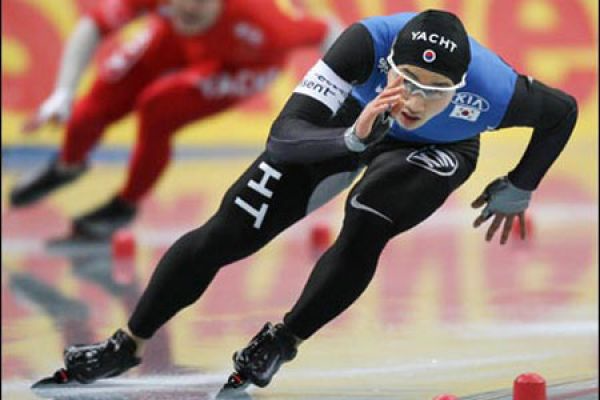 b
b
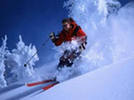 c
c

d
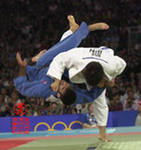 e
e
 f
f
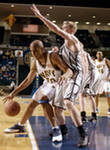 g
g
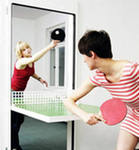 h
h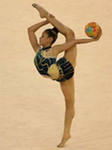 i
i
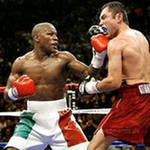 j
j
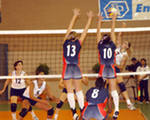
k
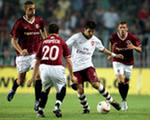
1. Skiing 2. Skating 3. Boxing 4. Table tennis (Ping-Pong) 5. Swimming
6. Volleyball 7. Football 8. Gymnastics 9. Gymnastics 10. Judo 11. Basketball
PART XIII: KAZAKH NATIONAL GAMES
In the Past the life and well-being of Kazakhs depended on their strength, endurance and courage. So, special attention was paid to teaching young generation good qualities.
Many rules are connected with birth, childhood, youth and maturity of a young man. For example, on shildekhana (a celebration of child’s birth) well-to-do people invite villagers to their place, hold different kinds of competitions, serve generous meals.
Then comes another event. It is a ‘besik-toi’, when a newborn baby is put into a national cradle. When the child begins to make first steps, the tradition of releasing from rope-chains is held. His legs are tied with rope, imitating rope-chains and respected man, who makes things fast and well is asked to cut the rope. Cutting chains means an open road to life.
At the age of 6 or 7 the boy is mounted on a horseback. He is given not only a lash, but also a spear to be brave.
Songs, dances and national games always follow all these traditions.
Bestas
Bestas (‘five pebbles’) is played by two or more people. A flat place and five little, round pebbles should be chosen for this game. It is played with one hand. The game consists of several level steps.
1. A player strews the pebbles on the ground. He chooses a ‘kuspek’ (one of the pebbles) and throws it up. While the pebble is in the air the player must pick up the other three pebbles.
2. Two pebbles should be picked up at a time.
3. Now, at first three pebbles should be thrown up and after that only one pebble.
4. Four pebbles should be picked up at once.
5. “Dumb”. The rules of the game are the same as in the first level; only the pebbles shouldn’t strike each other.
6. “The nest”. The fingers of the left hand are put on the ground in the form of a tent. It is called “the nest”. Five pebbles should be thrown up above the tent. The pebble which is rolled further than the others is a ‘kuspek’. The rest of the pebbles are pushed between the fingers and they should be gathered into “the nest”. Then “kuspek” is thrown up and the pebbles should be picked up from “the nest”. If the player drops a pebble during the game, the second participant starts to play. That player who manages to pass through all the levels of the game is the winner.
